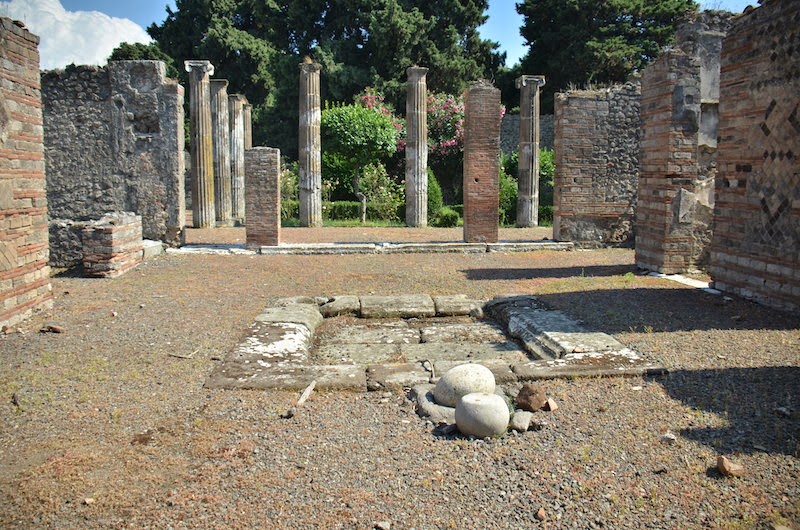The buried city of Pompeii is well
known around the world for having been buried by a volcano. I didn’t realize
that what killed the people of the city wasn’t the ash and rocks, but the fumes
and gas that came first.
 |
| Plasterised person |
 |
| Supposedly a pregnant woman |
In 27 AD Mt Vesuvius erupted and did indeed
destroy the city. Before this there had been a severe earthquake that caused a
lot of damage. A very interesting technique of creating plaster casts out of
the victims has allowed archaeologists to preserve what remained of people and animals
when excavating. The ash somewhat preserved the bodies and concrete was pumped
into the crevasses left to re-create them. As the bones remain they can be seen
within the “corpses”.
 |
| Dog |
 |
| Plasterised person and found ceramics |

 |
| Fully functional pizza oven |

It must have been an impressive city and the
agoras, temples and city centre have been identified. It takes a lot of
imagination to envisage what it would have been like in its heyday however.
One particularly interesting feature of the houses
can be seen in the ruins: slanted gaps in the roofs were built with a stone catchment
beneath to collect the rainfall that would channel straight into it.
 |
| Spa |
 |
| Roof detailing |
 |
| Altar to Caesar |
 |
| Painted walls |
 |
| Weights and measures system |
 |
| Artistic photo on ruins with the Volcano in behind! |






















No comments:
Post a Comment